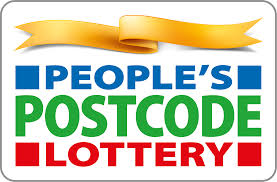
Introduction
The People’s Postcode Lottery (PPL) has gained significant attention in the UK for its unique approach to charitable funding through a lottery system. This initiative not only offers participants the chance to win cash prizes but primarily aims to support charitable organisations and community projects across the nation. Amidst ongoing discussions regarding charitable funding and social impact, understanding the workings and benefits of the PPL is more relevant than ever.
How It Works
The People’s Postcode Lottery operates on a simple premise: players buy tickets based on their postcode, and daily, monthly, and weekly cash prizes are awarded. A significant portion of the ticket sales—around 32%—is directly donated to charities, making it a notable funding source for many organisations. Since its launch in 2005, the lottery has raised over £1 billion for various social causes, highlighting its role in enhancing community well-being.
Impact on Charities and Communities
In 2023 alone, the PPL has continued to make headlines for its contributions to local charities, including those focusing on education, health, and environmental sustainability. Recent reports indicate that over 4,000 charities benefit from the funds raised, with many grassroots initiatives gaining financial support that they would struggle to secure through traditional fundraising efforts. For example, initiatives such as community gardens, mental health support programmes, and youth development projects have received significant boosts through PPL funding.
Recent Developments and Future Outlook
With increasing competition in the charitable sector, the People’s Postcode Lottery is continuously evolving. Recent social media campaigns have aimed at raising awareness and attracting new players, particularly younger demographics. Furthermore, the lottery has implemented measures to ensure transparency and ethical play, which are critical in maintaining public trust in its operations. As socio-economic challenges persist in various communities, the role of the PPL may become even more crucial.
Conclusion
The People’s Postcode Lottery exemplifies how collaborative efforts between individuals and charitable organisations can result in tangible benefits for communities. As it continues to flourish and adapt to the changing landscape, the PPL not only facilitates financial support for its partners but also encourages a culture of community engagement and philanthropy among its participants. Looking ahead, the continued success of the PPL will depend on its ability to connect further with the public and address pressing social needs effectively, ensuring that the funds raised will benefit those who need it most.
You may also like

The Significance of Christmas Jumper Day 2023

Celebrate Christmas Jumper Day 2025: A Festive Tradition

Slough Town FC: A Look at the Club’s Journey and Future
SEARCH
LAST NEWS
- Remembering Wendy Richard: The Promise to Co-Star Natalie Cassidy
- How Did Anglian Water Achieve an ‘Essentials’ Rating for Mental Health Accessibility?
- Shai Hope Leads West Indies in T20 World Cup Clash Against South Africa
- What We Know About Weston McKennie: Future at Juventus and Past at Leeds
- What We Know About the Upcoming Live Nation Antitrust Trial